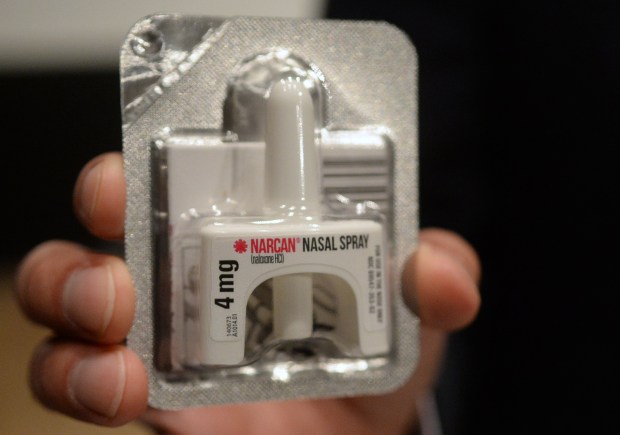I still feel the pain of losing my brother to a fatal opioid overdose in 2018. Jerry was only 50. It was at that moment that I committed to being an advocate for overdose death prevention in my home county of Marin.
Earlier this month, the Marin Independent Journal highlighted the story of Aidan Mullin, who at the young age of 18, accidentally overdosed on a fentanyl pill disguised as Percocet. His teen cousin Avery Kalafatas, stung by the tragedy, is now joining the effort to raise awareness of these deadly, fake “fentapills.”
Community action should not have to be preceded by death.
Between 2021 and 2022, overdoses among people ages 39 and younger in Marin rose 30%. This silent plague is taking place all around us and disproportionately affecting our young adults. As a community, we need to join forces before we lose another loved one or neighbor to fentanyl.
Fentanyl is a synthetic opioid that is 50 to 100 times stronger than heroin or morphine. Because it’s cheap and easy to produce, it’s often found in counterfeit pills and powders — which look the same as the real thing.
It’s nearly impossible to tell if a pill has been laced with fentanyl because It cannot be seen, smelled or tasted. People purchasing drugs online and through other channels often believe they are buying prescription pills such as Xanax, Oxycodone or Adderall (or cocaine, heroin and methamphetamines) when an estimated 42% of illicitly sold pills contain a potentially lethal dose of fentanyl. Because of the poisoned drug supply, fentanyl-related overdose deaths in California are increasing at an alarming rate.
RxSafe Marin is a community coalition that has been saving lives and reducing harm from prescription and other drug use in Marin County since 2014. I became involved with this organization because its evidence-based strategies and initiatives align with the Center for Disease Control and Prevention’s recommended actions to combat the overdose epidemic: Expand prevention and response activities while ensuring people at the highest risk of overdose can access needed resources.
The strength of RxSafe Marin is in its community-based structure. Six action teams made up of parents, youth, community members, health care providers, educators, law enforcement and business partners share the common goal of achieving an overdose-free Marin.
The work of RxSafe Marin centers around preventing overdoses through education and providing life-saving tools. This year alone, our teams have distributed more than 2,000 doses of Narcan, a medicine that rapidly reverses an opioid overdose, and provided training to 31 schools in Marin.
A curriculum toolkit is being developed in collaboration with the Marin County Office of Education, educators and youth to raise awareness of substance use in classrooms. Medication take-back days, fentanyl drug test strip distribution (through The Spahr Center) and other efforts are underway to help reduce harm. And that just scratches the surface of our plans for 2022.
In addition to parents, we want more young people, like Kalafatas, to join us in this important work. Youth see and understand firsthand how dealers market fentanyl-laced drugs directly through apps like Snapchat and Instagram.
RxSafe Marin’s Youth Action Team is led by young activists. Besides planning and hosting Narcan outreach events, they share information about Marin’s Crisis Text Line (text MARIN to 741741), stock free Narcan vending machines and promote drug take-back awareness on social media. RxSafe youth also are working with MCOE on substance use curricula, wellness initiatives and more.
By working together, we can spread the word about synthetic opioids like fentanyl, promote recovery from addiction, and prevent unnecessary deaths. Learn more, sign up for our newsletter and connect with us by visiting rxsafemarin.org or emailing info@rxsafemarin.org.
There’s a lot of work to do and a proven collaboration mechanism exists. All we need is you.


No responses yet